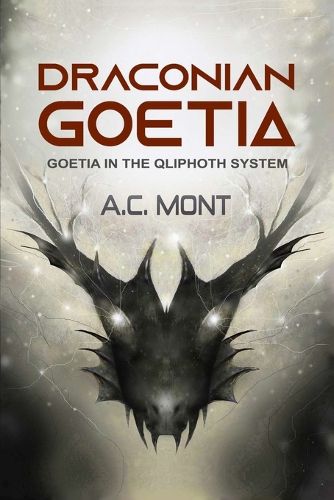Readings Newsletter
Become a Readings Member to make your shopping experience even easier.
Sign in or sign up for free!
You’re not far away from qualifying for FREE standard shipping within Australia
You’ve qualified for FREE standard shipping within Australia
The cart is loading…






"Goetia" comes from the Greek word goeteia, which means "sorcery". In the beginning, it was the somber practice of mourning the deceased in funeral rites and, later, of trying to contact the dead in order to obtain knowledge. From that context, goetia was developed as a means of contacting the "dead" chthonic entities, that is, entities from the underworld, from the depths of caves and grottoes on Earth, or from the "world of the dead". Since its early Greek beginnings, goetia seems to have been an individual practice, of personal experience, even reaching its excessive medievalesque ecclesiastical form as a monotheistic pseudepigraphical document that described entities of pagan mythological polytheism (or supposedly "strange" entities, of the people not converted to monotheism). Here, in this work, goetia is presented in conformity with the draconian qabalah structure (qliphoth planetary system), according to the entities-codes pertinent attributions, such as: attainment, psychoaromata (incense and essential oil), operation hours, names pronunciation, keys-sigils colours (seals), and more. Using a direct, clear and objective language, without vague or obscure terms, without stagnant medievalisms, and, by extension, without old-fashioned nobiliary and monarchical vocabulary, goetia is brought to a more current and facilitated understanding, so that its study and practice are accessible, without unnecessary excesses and no ecclesiastical dogmas.
$9.00 standard shipping within Australia
FREE standard shipping within Australia for orders over $100.00
Express & International shipping calculated at checkout
"Goetia" comes from the Greek word goeteia, which means "sorcery". In the beginning, it was the somber practice of mourning the deceased in funeral rites and, later, of trying to contact the dead in order to obtain knowledge. From that context, goetia was developed as a means of contacting the "dead" chthonic entities, that is, entities from the underworld, from the depths of caves and grottoes on Earth, or from the "world of the dead". Since its early Greek beginnings, goetia seems to have been an individual practice, of personal experience, even reaching its excessive medievalesque ecclesiastical form as a monotheistic pseudepigraphical document that described entities of pagan mythological polytheism (or supposedly "strange" entities, of the people not converted to monotheism). Here, in this work, goetia is presented in conformity with the draconian qabalah structure (qliphoth planetary system), according to the entities-codes pertinent attributions, such as: attainment, psychoaromata (incense and essential oil), operation hours, names pronunciation, keys-sigils colours (seals), and more. Using a direct, clear and objective language, without vague or obscure terms, without stagnant medievalisms, and, by extension, without old-fashioned nobiliary and monarchical vocabulary, goetia is brought to a more current and facilitated understanding, so that its study and practice are accessible, without unnecessary excesses and no ecclesiastical dogmas.